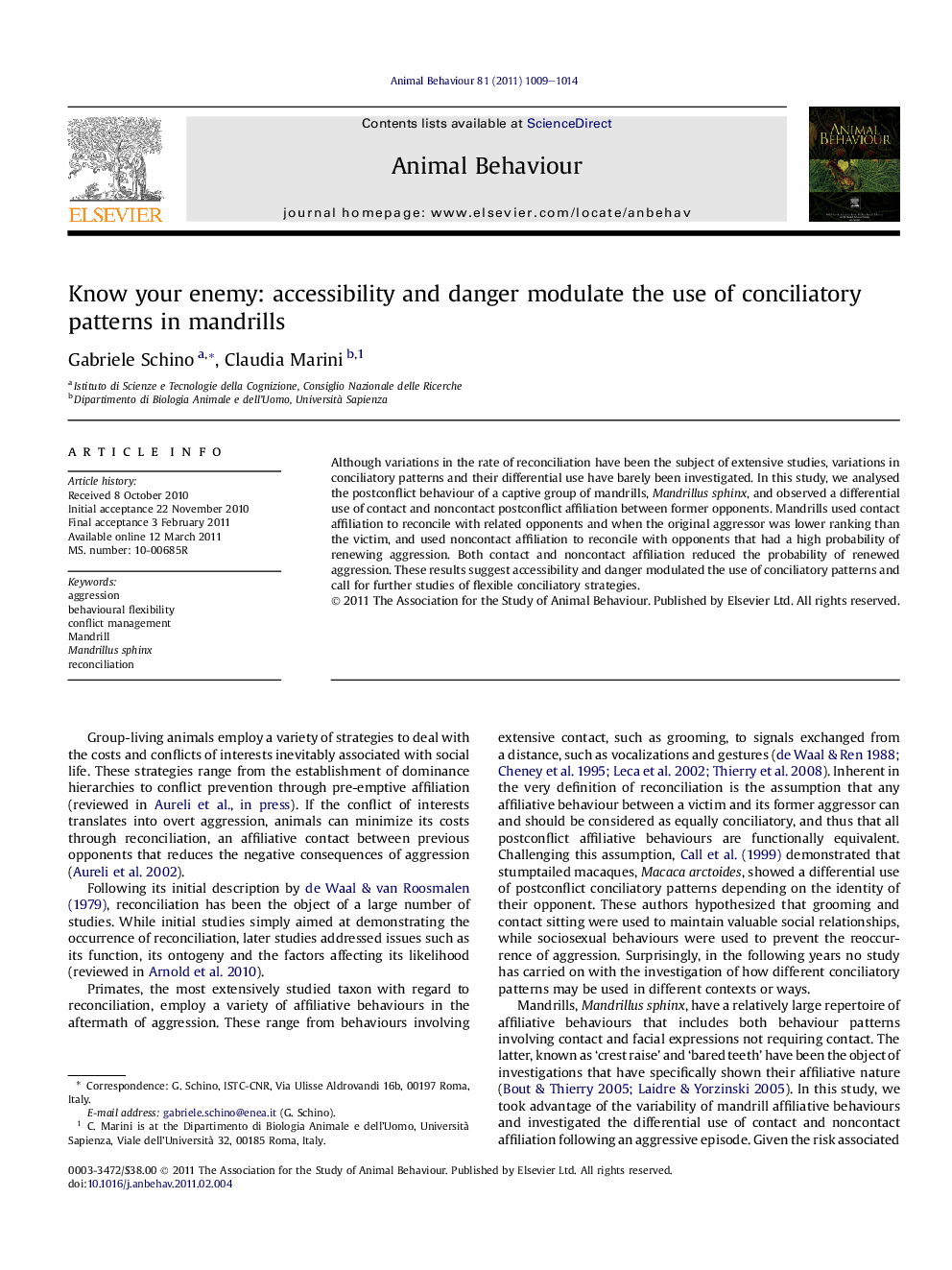| Article ID | Journal | Published Year | Pages | File Type |
|---|---|---|---|---|
| 2417058 | Animal Behaviour | 2011 | 6 Pages |
Although variations in the rate of reconciliation have been the subject of extensive studies, variations in conciliatory patterns and their differential use have barely been investigated. In this study, we analysed the postconflict behaviour of a captive group of mandrills, Mandrillus sphinx, and observed a differential use of contact and noncontact postconflict affiliation between former opponents. Mandrills used contact affiliation to reconcile with related opponents and when the original aggressor was lower ranking than the victim, and used noncontact affiliation to reconcile with opponents that had a high probability of renewing aggression. Both contact and noncontact affiliation reduced the probability of renewed aggression. These results suggest accessibility and danger modulated the use of conciliatory patterns and call for further studies of flexible conciliatory strategies.
